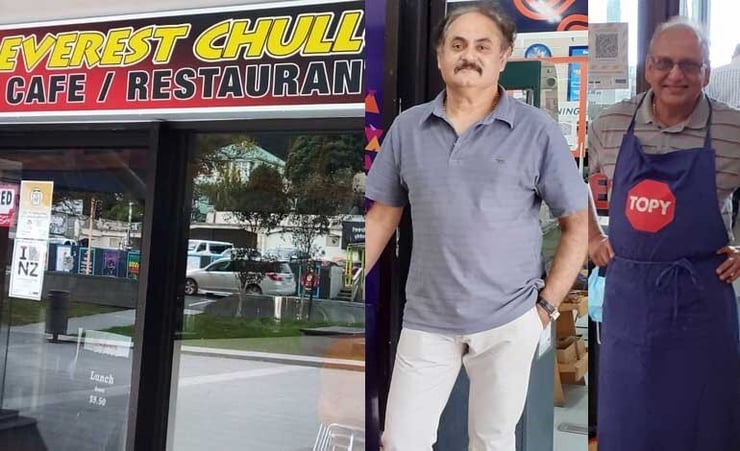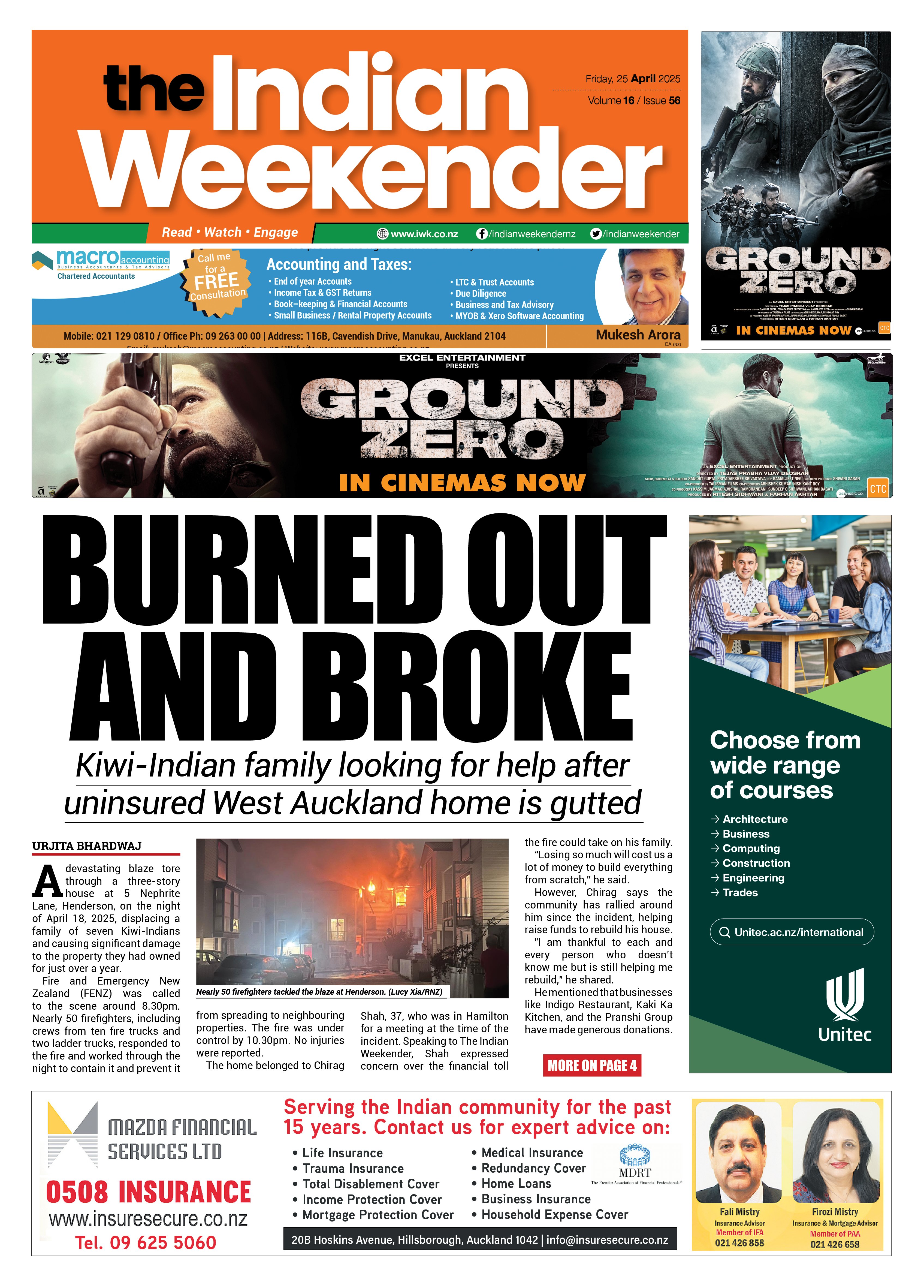Indian businesses sore at missing out on maximum relief from City Council

Retail outlets operating close to Parliament, owned by members of the Indian and wider subcontinental diaspora, said their claims for relief were either overlooked or not adequately met after suffering revenue losses following the 23-day blockade of the area by protestors early this year.
A total of 91 businesses applied for a one-off $30,000 payment from a $1.2 million business relief fund set up jointly by the Wellington City Council and the government to aid businesses impacted by the occupation of the Parliament grounds by protestors, before they were cleared by the police on March 2.
The City Council added $1 million to the government’s contribution of $ 200,000 to establish the relief fund.
Businesses that experienced a reduction in revenue of 50 per cent or more from 6 February 2022 to 2 March 2022 were eligible to apply. The relief was capped at a maximum of $ 30,000 as a one-off payment to every eligible business.
Thus far, a total of $974,600 has been disbursed from the fund to 50 businesses deemed eligible for relief by the City Council.
Of these, 18 businesses received the maximum one-off payment of $30,000.
The rest of the applicants received varying amounts with the smallest payment being $2000.
City Council appointed a panel of senior staff, assisted by an independent financial consultant, to determine which businesses qualified for relief. Businesses had to provide documentation to support their claims of revenue loss for the period of the protest, between February and March.
City Council Economic Wellbeing and CCOs manager Anna Calver noted that businesses “were either forced to shut completely or suffered massive downturns in custom due to the disruption and intimidation associated with the protest.”
Indian Weekender revisited businesses operating at the arcade on Molesworth Street, across the road from Parliament.
While foot traffic in the business district appeared to have gradually picked up since the protest ended, business is yet to return to pre-protest levels.
The road closures and police cordons around Parliament during the protest choked the customer flow to Sunil Gandhi’s convenience cum Lotto and NZ Post outlet at the arcade.
Gandhi’s customers came from the government offices located in the building, including high-profile names such as New Zealand Rugby. With officegoers forced to work from home during the protest, Gandhi estimated his revenue loss was upward of the 50 per cent eligibility norm set by the Council and resolved to “fill out the forms” to apply for relief.
But Gandhi was left out of the City Council’s list of businesses eligible for relief, according to Asha, a member of the family.
The story was much the same in the case of the Molesworth Shoe and Bag Repairs Store, a family-owned business started in 1936. The business failed to qualify for relief despite suffering revenue loss on account of the Parliament protests.
Across the hallway, the Everest Chullo cafeteria, which had a “closed” sign pasted on its glass door in the early days of the protest, has since opened for business.
Ram Tamang, the café’s Nepali-origin owner, had started the outlet in December, just prior to the occupation of the Parliament grounds by protestors.
Tamang told Indian Weekender he had applied for the maximum relief of $30,000 but ended up getting $18,000. This amount went some way in meeting overheads such as rent and staff salaries.
P&J Vallabh Partnership t/a Freeman’s Lotto and News Agency, one of the listed recipients of the maximum grant of $30,000, declined to take questions when contacted by the Indian Weekender.
The City Council’s pre-condition of providing proof of 50 per cent revenue loss kept some business owners out of the reckoning for relief.
Babu Chauhan, who owns the Lesvos store at the Wellington Rail Station, saw a revenue loss of 30 per cent and was, therefore, not eligible for relief. However, Chauhan was a recipient of the Council’s Covid relief fund, which preceded the protest-related relief payments.
City Council’s Calver acknowledged its panel exercised “discretion regarding the location of some businesses that applied for payments.”
Clearly, that left room for debate around the criteria adopted by City Council while shortlisting businesses eligible for relief.





